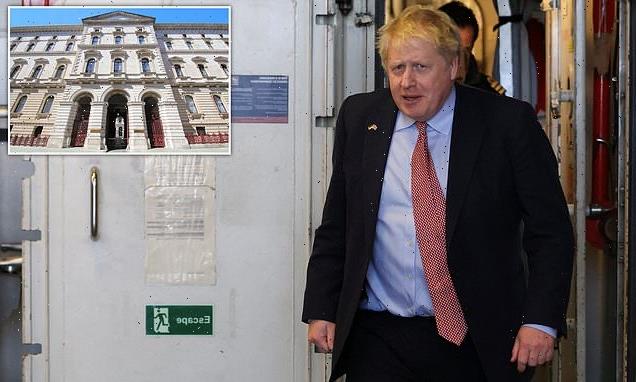
Government lawyers ‘are going slow on Russian oligarch sanctions because they are afraid of falling foul of 2013 Supreme Court ruling that forced taxpayers to pay £1.3billion to Iranian bank hit by “unlawful” penalties’
- UK sanctions against Russian oligarchs have been slower than the US and the EU
- Government lawyers are said to be wary of repeating mistakes from past case
- The UK sanctioned an Iranian bank in 2009 but the move was deemed unlawful
- As a result the Government had to pay a settlement worth a reported £1.3billion
Government lawyers are acting slowly in the sanctioning of Russian oligarchs because of fears of repeating mistakes which led to a £1.3billion payout to an Iranian bank, it was claimed today.
The UK sanctioned Bank Mellat back in 2009 after the Treasury alleged it was involved in financing firms involved in Iran’s nuclear programme – something the bank always denied.
The Supreme Court ruled in 2013 that shutting the Tehran-based bank out of the UK financial sector was unlawful and after a lengthy legal battle the Government agreed in 2019 to pay a huge settlement.
Cabinet figures told The Telegraph that the court case has had a ‘chilling effect’ on the Government’s lawyers. The Government’s sanctions team is based in the Foreign Office.
A Whitehall source told the newspaper that the case has been repeatedly raised during recent discussions about imposing sanctions on Russian oligarchs.
Government lawyers are acting slowly in the sanctioning of Russian oligarchs because of fears of repeating mistakes which led to a £1.3billion payout to an Iranian bank, it was claimed today
Cabinet figures told The Telegraph that the court case has had a ‘chilling effect’ on the Government’s lawyers. The Government’s sanctions team is based in the Foreign Office
MPs have expressed frustration over the speed of the roll out of the UK’s sanctions on wealthy individuals, with questions asked over why the US and the EU have been able to move more quickly.
Summing up the concerns of the Government’s lawyers, one source said: ‘If an oligarch is going to sue over sanctions, then the one place it is going to happen is here.’
The Government has insisted its focus is on ensuring the cases it makes against oligarchs are watertight to ensure they can be defended in court, should legal challenges be brought forward.
Ministers will want to avoid at all costs the situation of a case falling apart and an oligarch then being awarded a large taxpayer-funded settlement.
Bank Mellat sued HM Treasury for £1.25billion after being shut out of the UK financial sector by a 2009 financial restrictions order made under the 2008 Counter-Terrorism Act.
In 2013 the Supreme Court found the order was unlawful, with a majority ruling that the Treasury had failed to comply with procedural requirements contrary to the European Convention on Human Rights (ECHR).
The court said Mellat had received no notice of the Treasury’s intention to impose sanctions and that singling the bank out ‘was arbitrary and irrational, and disproportionate’.
In the wake of the ruling, the bank launched a claim against the Treasury under the 1998 Human Rights Act on grounds that it suffered massive losses as a result of the ‘negligently imposed’ sanctions.
The bank claimed it had a ‘thriving and profitable’ international finance business before the order destroyed its UK operations and caused ‘serious and irreparable’ damage internationally, with overall ‘catastrophic’ results.
The parties eventually reached a confidential settlement in 2019 for an undisclosed sum. The Telegraph reported that the final settlement was approximately £1.3billion.
Source: Read Full Article

